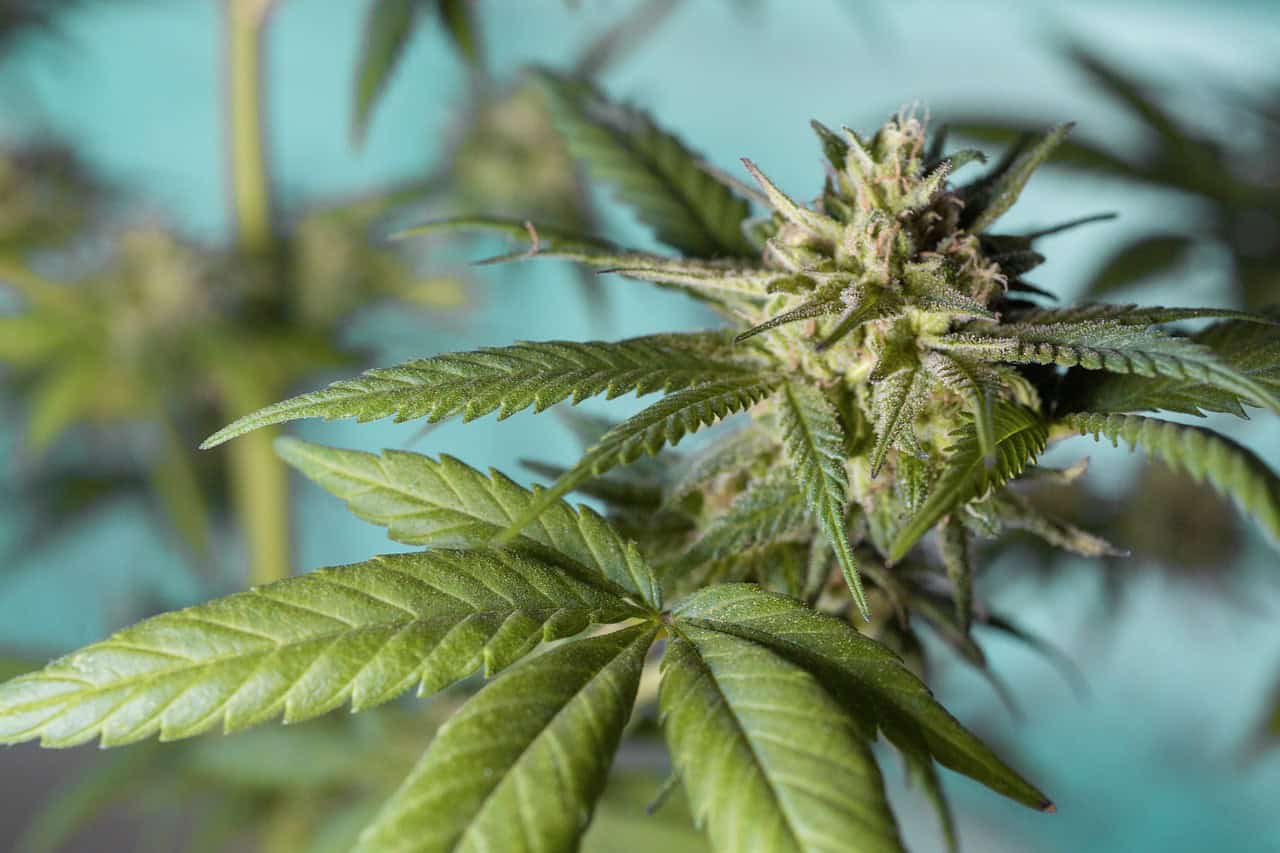
Is CBD Legal in Kentucky
Yes, CBD products are legal in Kentucky
 Legal
Legal
CBD is legal in Kentucky. In 2017, Kentucky passed HB 333, legalizing the sale of hemp-derived products if they contained less than 0.3% THC.
CBD, or cannabidiol is a compound derived from the cannabis plant. CBD has the potential to offer therapeutic benefits without psychoactive effects. It has shown promise in alleviating pain, reducing anxiety, and improving the quality of sleep. Research into CBD is still ongoing, but it has shown effectiveness in treating a variety of ailments. Before buying CBD in Kentucky, make sure to check the lab test results for each product to ensure that they are labeled accurately.
There is no legal minimum set to purchase CBD products in Kentucky. However, most vendors will require that the buyer is at least 21.
CBD that is taken orally will completely leave the body after 11 to 28 days. CBD that is vaped or smoked will exit the body in a few hours. Regular users of CBD may take longer to clear CBD from their system compared to newer users.
CBD oil can be made by extracting cannabidiol from cannabis or hemp plants. The composition of CBD oil can vary depending on the plant that it was extracted from.
CBD does not cause the "munchies" like THC products do. However, by relieving pain, CBD may be able to indirectly restore a user's appetite.
Yes, hemp flower can be smoked. It does not have psychoactive effects, but has the same effects as CBD taken orally. This includes pain relief and relaxation.
CBD gummies can have similar benefits to other types of CBD products. These include relaxation, decreased pain, and reduced inflammation.
CBD gummies can have similar benefits to other types of CBD products. These include relaxation, decreased pain, and reduced inflammation.
Is THC Legal in Kentucky
No, THC products are illegal in Kentucky
 Legal
Legal
In Kentucky, you must be at least 18 years old to legally purchase THC products for medical use once the regulated market is established. Currently, while Kentucky has legalized medical cannabis for specific qualifying conditions, there are no licensed dispensaries yet available for patients to obtain THC products.
Minors under 18, can access medical marijuana if they qualify as a patient, but a designated caregiver—typically a parent or legal guardian—must apply for the medical card on their behalf and purchase the products.
Currently, THC products in Kentucky do not go through third-party testing because the state has not yet established a regulated system for medical marijuana dispensaries. While Kentucky has legalized medical cannabis, the framework for the production, distribution, and sale of THC products is still being developed. As a result, there are no established testing protocols or quality assurance measures in place for THC products at this time.
However, hemp-derived products containing less than 0.3% THC, such as CBD oil, are legal and may be subject to some level of testing by manufacturers, but there is no state law mandating third-party testing for these products either. Consumers should be cautious and conduct their research when purchasing hemp-derived products, as manufacturing standards can vary widely among producers. Overall, without a regulated market for THC products in Kentucky, there are no assurances regarding testing or quality control.
Currently, THC products in Kentucky do not go through third-party testing because the state has not yet established a regulated system for medical marijuana dispensaries. While Kentucky has legalized medical cannabis, the framework for the production, distribution, and sale of THC products is still being developed. As a result, there are no established testing protocols or quality assurance measures in place for THC products at this time.
However, hemp-derived products containing less than 0.3% THC, such as CBD oil, are legal and may be subject to some level of testing by manufacturers, but there is no state law mandating third-party testing for these products either. Consumers should be cautious and conduct their research when purchasing hemp-derived products, as manufacturing standards can vary widely among producers. Overall, without a regulated market for THC products in Kentucky, there are no assurances regarding testing or quality control.
Is Delta-8 Legal in Kentucky
Yes, Delta-8 products are legal in Kentucky
 Legal
Legal
Delta-8 THC is legal in Kentucky for adults over 21, although there are some testing, packaging, and other requirements; Delta-8 tetrahydrocannabinol (Delta-8 THC) is a cannabinoid found in the cannabis plant, known for its psychoactive effects, although they are generally milder compared to the more well-known Delta-9 THC. The debate over Delta-8 largely centers on its legal status, potential health risks, and production methods. Despite being derived from hemp, legalized in the United States via the 2018 Farm Bill, the extraction and conversion processes have come under regulatory scrutiny. Critics argue that these methods could lead to impurities and safety issues. Moreover, concerns exist regarding its impact, particularly when consumed by vulnerable groups such as minors, given that Delta-8 products are often promoted as a legal and less potent alternative to traditional marijuana. Consequently, the regulatory environment and public perception surrounding Delta-8 THC remain intricate and contentious.
Delta-8 THC is legal in Kentucky for adults over 21, although there are some testing, packaging, and other requirements; Delta-8 tetrahydrocannabinol (Delta-8 THC) is a cannabinoid found in the cannabis plant, known for its psychoactive effects, although they are generally milder compared to the more well-known Delta-9 THC. The debate over Delta-8 largely centers on its legal status, potential health risks, and production methods. Despite being derived from hemp, legalized in the United States via the 2018 Farm Bill, the extraction and conversion processes have come under regulatory scrutiny. Critics argue that these methods could lead to impurities and safety issues. Moreover, concerns exist regarding its impact, particularly when consumed by vulnerable groups such as minors, given that Delta-8 products are often promoted as a legal and less potent alternative to traditional marijuana. Consequently, the regulatory environment and public perception surrounding Delta-8 THC remain intricate and contentious.
Regardless of Delta-8's perceived inferior potency compared to Delta-9 THC, it remains capable of inducing psychoactive effects, accentuating the need for circumspect use. Individuals with pre-existing medical conditions or utilizing medications should seek advice from a healthcare professional before delving into Delta-8.
The impact of Delta-8 THC on the body is orchestrated through its attachment to the CB1 receptors within the endocannabinoid system, primarily situated in the central nervous system. This connection triggers psychoactive effects, generally less pronounced than those induced by Delta-9 THC. Individuals often express feelings of relaxation, euphoria, and an altered sensory perception. Delta-8 may also incite an increased appetite, provoke dry mouth, and result in red eyes. Nevertheless, the expression of its effects can diverge significantly from individual to individual, shaped by factors such as dosage, tolerance, and the distinctive sensitivity of each person to cannabinoids.
Delta-8 THC is legal in Kentucky thanks to a judge’s injunction, and the legal status was confirmed by the state governor. A Kentucky senate bill tried to ban Delta-8 and similar products but it died.
While Delta-8 THC and Delta-9 THC have comparable chemical structures, Delta-8 is generally regarded as less potent and often leads to a milder, more mentally clear high. It's often favored by users seeking a more functional experience.
Delta-8 THC comes in a variety of presentations, encompassing edibles, vape cartridges, tinctures, and capsules. The preferred method of consumption is a matter of personal choice, influenced by individual preferences and the desired effects.
The safety of Delta-8 THC continues to be a topic of ongoing debates and research. Although commonly believed to be less potent with milder psychoactive effects than Delta-9 THC, concerns endure regarding potential impurities introduced during its production. Safety considerations, dependent on individual health, usage patterns, and dosage, highlight the necessity for extensive scientific investigations to conclusively assess safety, particularly in the absence of well-defined regulatory guidelines.
Regularly observed side effects might consist of dry mouth, red eyes, an accelerated heart rate, and temporary memory lapses. Typically, these effects are milder than those commonly associated with Delta-9 THC.
Indeed, Delta-8 THC can potentially trigger a positive result on a drug test, given that many tests lack the ability to differentiate between Delta-8 and Delta-9 THC. If drug testing is a consideration, using Delta-8 products should be done with caution.
Depending on where you are, your ability to purchase Delta-8 products might be subject to age restrictions, often specifying a minimum age of either 18 or 21. To adhere to the law, make it a priority to become acquainted with your local age requirements through thorough research on local regulations.
When seeking Delta-8 products, you'll find numerous options, such as licensed dispensaries, online retailers, and select convenience stores. It's essential to research the legality of Delta-8 in your area before making a purchase and select a reputable seller committed to both product quality and compliance with local regulations.
Is Delta-9 Legal in Kentucky
No, Delta-9 products are illegal in Kentucky
 Legal
Legal
In Kentucky, you need to be at least 21 years old to buy Delta-9 THC products. This age restriction aligns with the state’s regulations for purchasing hemp-derived products and is designed to ensure responsible use.
Yes, it is legal to smoke Delta-9 THC flower in Kentucky, provided that the Delta-9 THC is derived from hemp and contains less than 0.3% THC by dry weight. This is in line with federal guidelines set by the 2018 Farm Bill.
Yes, in Kentucky, Delta-9 THC products are required to undergo third-party testing. This ensures that the products comply with state quality standards, meet federal guidelines (including having less than 0.3% Delta-9 THC), and are free from contaminants such as pesticides, heavy metals, and residual solvents
In any case, it is always recommended that you take the time to review these lab reports to ensure product safety and potency, regardless of legal requirements.
Is HHC Legal in Kentucky
No, HHC products are illegal in Kentucky
 Legal
Legal
You must be at least 18 years old to buy hemp-derived HHC products. These products can be found in various retail settings, including convenience stores, vape shops, and online.
Yes, it is legal to smoke hemp-derived HHC (Hexahydrocannabinol) flower in Kentucky, provided the HHC complies with state regulations. Specifically, the product must contain less than 0.3% THC to meet federal and state standards for hemp-derived products.
In Kentucky, while there is no specific state mandate for third-party testing of HHC products, reputable manufacturers and retailers typically conduct such testing to ensure product safety and compliance with federal standards. This testing helps verify that hemp-derived HHC products meet quality standards, contain less than 0.3% Delta-9 THC, and are free from contaminants such as pesticides, heavy metals, and residual solvents.
Keep in mind that reputable manufacturers and retailers usually provide certificates of analysis (COAs) from independent labs, demonstrating that their products have been tested and meet the required standards. While state-specific regulations in Georgia may not mandate third-party testing for all hemp-derived products, purchasing from reputable sources that provide lab-tested products is highly recommended.
Disclaimer
This information is derived from our independent research. Our team aims to ensure that we give you accurate up-to-date details from reliable state-run sources. However, we are not legal experts, and local laws can be subject to change.










































